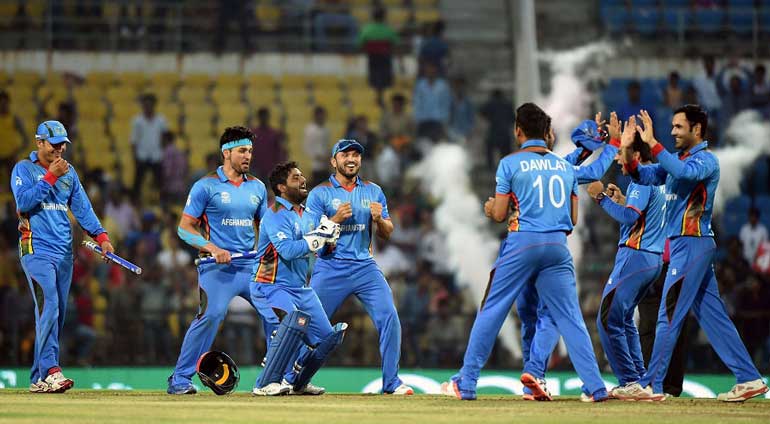Sunday Feb 22, 2026
Sunday Feb 22, 2026
Monday, 20 June 2016 00:00 - - {{hitsCtrl.values.hits}}

ESPNCricinfo: The ICC is pushing for the creation of a new ODI league for the world’s top 13 countries to give 50-over cricket new context and relevance.
Plans are well-advanced to create a new league from 2019 for 13 nations - believed to be the ten Test teams, Afghanistan, Ireland and one other Associate, with Nepal reportedly a favoured option. The league will see all countries play each other over three years, with the top two nations playing a play-off series to determine the overall winner of the ODI league.
It is hoped that the proposals will give ODI cricket a new context and sense of purpose, amid fears that the format fits awkwardly between Test and Twenty20 cricket, insufficiently loved either by traditionalists or newer fans.
Under the plans, each team would play a three-match series, either home or away, against every other country, amounting to 36 ODIs each over a three-year basis. The fourth year of each cycle would be reserved for World Cup preparation.
It is envisaged that the ODI league would progress towards a play-off series, likely to be either three matches or five, to determine the overall winner, giving bilateral ODI cricket a global showpiece it has previously lacked.The system, if adopted, would also be used to determine automatic qualification, and seedings, for the World Cup. The side finishing bottom after three years would face relegation to the World Cricket League Championship, the second tier of one-day cricket, possibly after a play-off with the winners of the World Cricket League Championship.
As with the proposed reforms to Test cricket, the structure is intended as a minimum schedule for each country, and they would be free to organise extra ODIs, which would not count towards the league.
The most obvious beneficiaries of the schedule would be Afghanistan and Ireland, who would have a guaranteed set of fixtures to develop their teams and have a more attractive set of matches to sell sponsors. While both have enjoyed an upturn in fixtures since inclusion on the 12-team ODI rankings table, the proposed new ODI league would bolster this further. The identity of the 13th team is likely to be altogether more controversial. The ICC are known to be impressed by the game’s popularity in Nepal, and are considering promoting Nepal regardless of their overall standing in the 2015-17 edition of the World Cricket League Championship.
Yet, if Nepal were elevated, in defiance of their position on the World Cricket League Championship table, which the Netherlands currently lead, the ICC would leave themselves open to undermining the integrity of their own structures.
The creation of a 13-team league, with promotion, is a crucial part of the ICC’s strategy to increase the number of competitive international teams and ensure they can rise on merit. Conversely, struggling teams will face relegation with, it is hoped, no exceptions for the ten nations with full member status.
This might affect Zimbabwe, whose recent 3-0 defeat at home to an understrength India side was one of the most one-sided ODI series in the history of the game - even allowing for their shock defeat of India in a T20I in Harare on Saturday.
The proposals are designed to provide ODI cricket with new relevance, which the format lacks outside the World Cup. It is also believed that the new structure would lead to the fixtures generating more broadcasting revenue, in the belief that fans would be more enticed by the notion of a league culminating in an easily understood winner. As with the favoured two-divisional structure in Test cricket, concerns about the dwindling commercial value of bilateral cricket, and a belief that the new structure would lead to greater revenue, underpin the proposals. The plans for ODI and Test cricket will be discussed at the ICC annual conference, which begins in Edinburgh at the end of the month.
While they might be agreed there, voting on the proposals could wait until the ICC board meeting in October, because the reforms are partly dependent upon changes in the ICC revenue model. However, it is understood that the decision to bring the World Twenty20 back to every two years is likely to be ratified in Edinburgh.